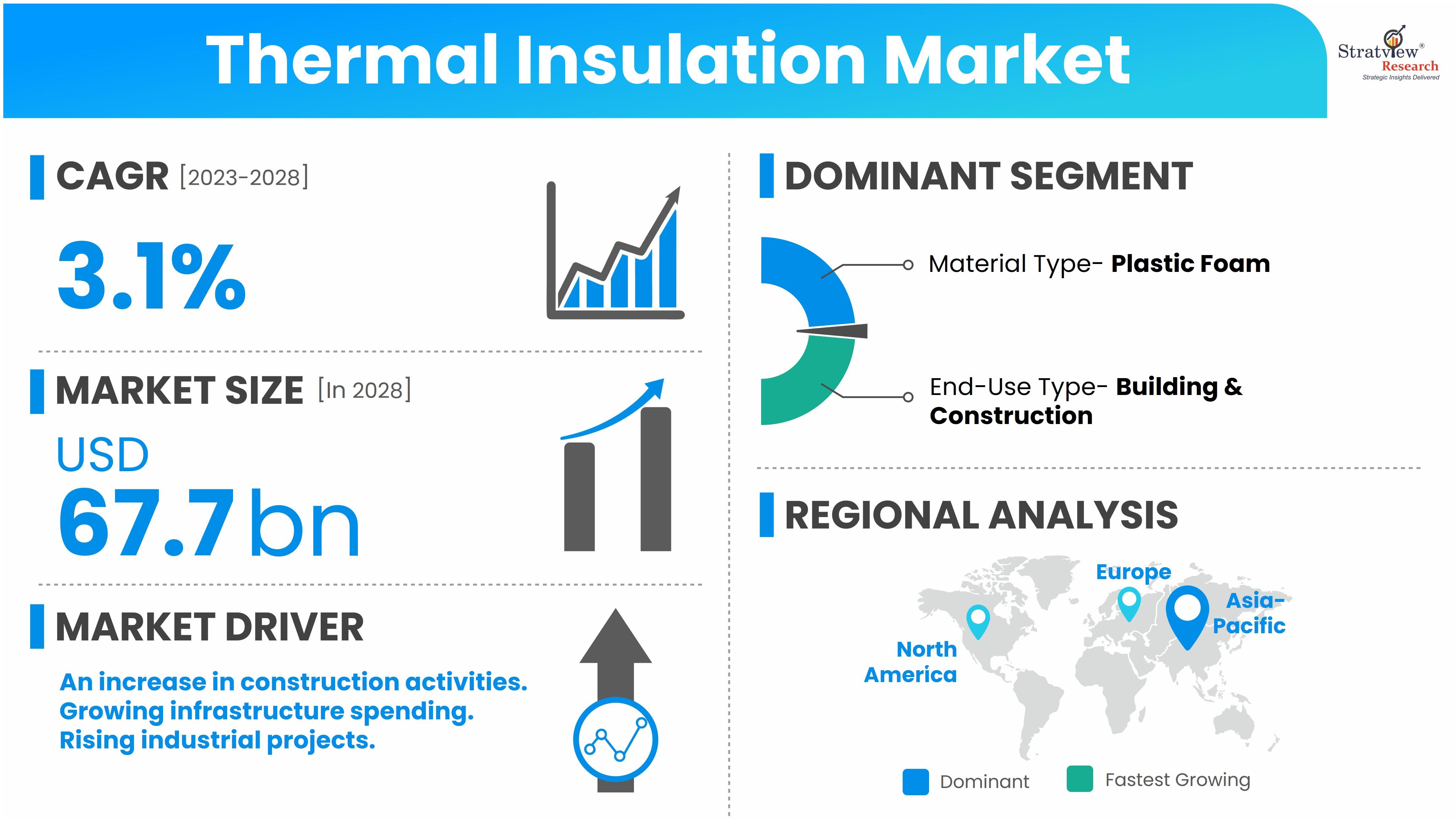Thermal Insulation Gets Smarter: Key Advancements to Watch in 2025

The thermal insulation market is undergoing significant advancements, driven by technological innovations, sustainability imperatives, and evolving regulatory landscapes. These developments are reshaping applications across construction, industrial, and data center sectors.
According to Stratview Research, the thermal insulation market was estimated at USD 58.2 billion in 2023 and is likely to grow at a CAGR of 3.1% during 2023-2028 to reach USD 67.7 billion in 2028.
Emergence of Smart and Sustainable Materials: Innovations in insulation materials are at the forefront of market developments. Advanced materials such as aerogels, phase-change materials (PCMs), and vacuum insulation panels (VIPs) are gaining traction due to their superior thermal performance. Aerogels, for instance, offer exceptional insulation properties while being lightweight, making them ideal for applications where space and weight are critical factors. PCMs are being integrated into building materials to regulate indoor temperatures by absorbing and releasing heat, enhancing energy efficiency. VIPs provide high thermal resistance in thin profiles, suitable for space-constrained applications.
Integration with Renewable Energy Systems: The synergy between thermal insulation and renewable energy systems is becoming increasingly prominent. Incorporating insulation materials with solar panels and other renewable technologies enhances overall energy efficiency. For example, integrating PCMs with solar panels can store excess heat during the day and release it when needed, optimizing energy use. Such integrations not only improve building performance but also contribute to sustainability goals.
Advancements in Data Center Insulation: Data centers, characterized by high energy consumption, are adopting advanced insulation solutions to improve energy efficiency and thermal management. Materials like flexible elastomeric foams are being utilized for insulating pipes and ducts, reducing heat loss and enhancing cooling efficiency. These developments are crucial in managing the thermal loads of data centers, thereby reducing operational costs and environmental impact.
Focus on Fire-Resistant and Eco-Friendly Solutions: Safety and environmental concerns are driving the development of fire-resistant and eco-friendly insulation materials. Manufacturers are introducing products that not only meet stringent fire safety standards but are also made from sustainable or recycled materials. For instance, the use of stone wool and cellulose-based insulations offers fire resistance and utilizes renewable resources, aligning with green building practices.
Regional Developments and Market Growth: The Asia-Pacific region is witnessing rapid growth in the thermal insulation market, propelled by urbanization, industrialization, and government initiatives promoting energy efficiency. Countries like China and India are investing in infrastructure development, leading to increased demand for insulation materials. Additionally, the Middle East is adopting advanced insulation technologies to combat extreme temperatures and reduce energy consumption in buildings.
In summary, the thermal insulation market is evolving with a focus on innovative materials, integration with renewable energy systems, enhanced safety features, and regional market expansions. These developments are pivotal in meeting the global demand for energy-efficient and sustainable building solutions.
- Art
- Causes
- Crafts
- Dance
- Drinks
- Film
- Fitness
- Food
- Games
- Gardening
- Health
- Home
- Literature
- Music
- Networking
- Other
- Party
- Religion
- Shopping
- Sports
- Theater
- Wellness




